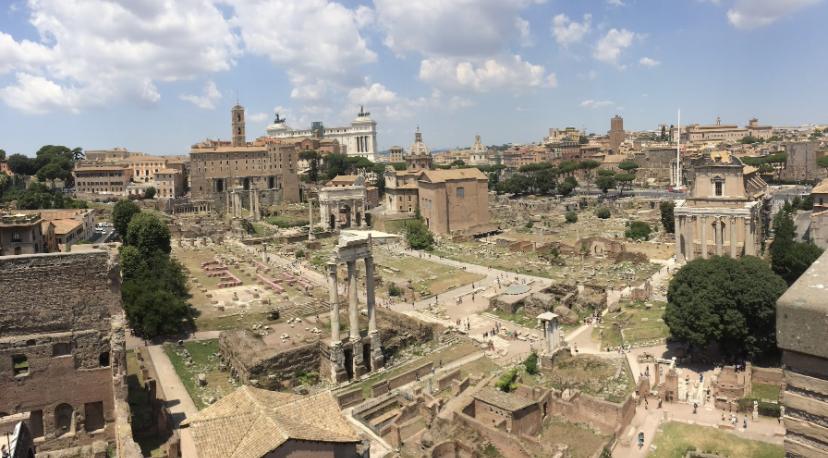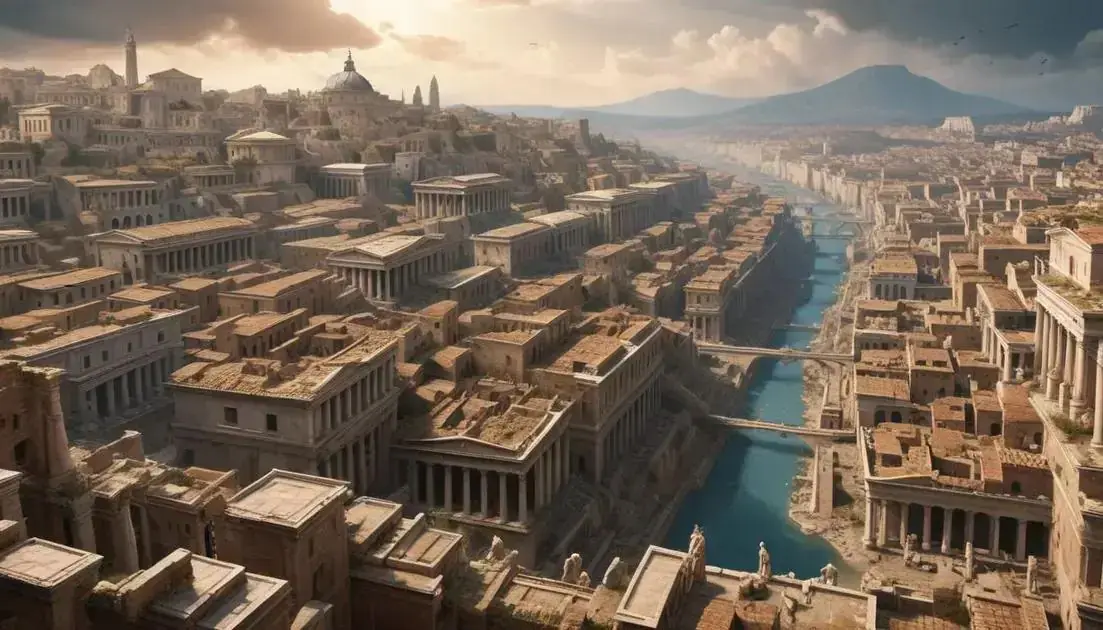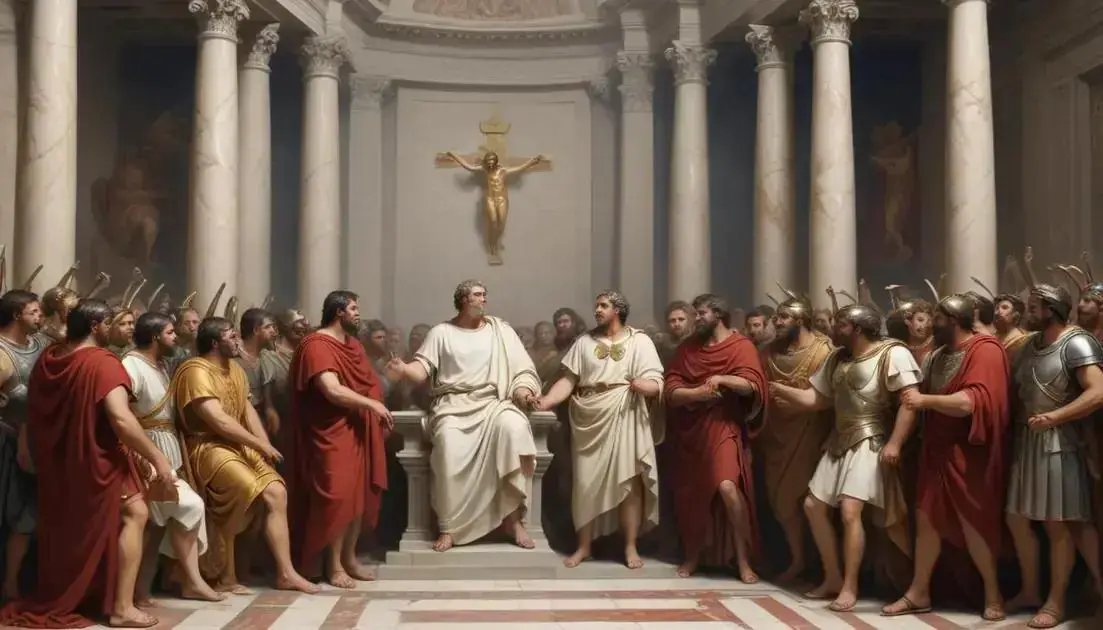
The Influence of Ancient Rome on Modern Government and Politics
The enduring legacy of Ancient Rome permeates numerous facets of modern society, from architectural marvels to sophisticated legal systems, and from groundbreaking engineering feats to the very foundations of governance. Its influence on modern government and politics is particularly profound, as the Romans crafted a system of governance that has indelibly shaped the trajectory of Western political thought and practice for centuries. This exploration delves into the multifaceted ways in which Ancient Rome has influenced modern government and politics, examining the enduring legacy of its political institutions and their continued relevance in the contemporary world. We will explore the Roman Republic’s contribution to democratic ideals, the development of the rule of law under Roman influence, the impact of Roman administrative structures on modern bureaucracy, and the enduring resonance of Roman political concepts in shaping our understanding of governance.
The Roman Republic: A Blueprint for Modern Democracy
The Roman Republic, flourishing from 509 BCE to 27 BCE, stands as a pivotal example of a governance system that ingeniously blended aristocratic and democratic principles. This innovative model, for its time, exerted a lasting influence on the evolution of modern democracy. The Republic’s structure featured a Senate, composed largely of patrician families, wielding significant legislative power, and a popular assembly, representing the interests of the plebeians (common citizens). This dual structure, while far from perfect by modern standards, offered a complex interplay of power, a critical aspect later adopted and refined in modern democratic systems.
The Roman Republic’s system of checks and balances, designed to forestall the concentration of power in the hands of any single individual or faction, presents another significant contribution to modern political thought. This concept, though imperfectly implemented in the Republic itself – as evidenced by the rise and fall of dictators and emperors – served as a crucial precedent for the development of constitutionalism in later eras. The division of powers within the Roman Republic, while not perfectly mirroring the tripartite separation of powers found in many modern constitutions, nonetheless laid the groundwork for the idea of dispersing authority among different branches of government to prevent tyranny.
The concept of representation, although not universally applied in the Roman Republic, is another crucial legacy. The popular assemblies, while often dominated by powerful figures, nevertheless provided a mechanism for the expression of the people’s will, albeit in a limited and often manipulated form. This early experiment with representative governance, even in its imperfect form, paved the way for the more sophisticated representative systems found in modern democracies. The evolution of the Roman assemblies, from their initial exclusive focus on plebeian concerns to their eventual role in broader legislation, illustrates the gradual expansion of political participation, a process mirroring the development of suffrage in modern democratic states.
The Roman Republic’s internal conflicts, however, serve as a potent reminder that even the most well-intentioned systems of governance are susceptible to internal strife and the potential for collapse. The recurring power struggles between patricians and plebeians, the rise of ambitious generals, and the eventual demise of the Republic itself highlight the inherent challenges of maintaining a balance of power and preventing the concentration of authority in the hands of a select few. These internal struggles, while ultimately leading to the fall of the Republic, also provided valuable lessons about the fragility of democratic systems and the need for constant vigilance against the erosion of democratic principles. The study of the Roman Republic’s failures provides crucial insights into the mechanisms required to ensure the resilience and longevity of democratic institutions.
The Development of the Rule of Law: Roman Jurisprudence and its Enduring Impact
Ancient Rome’s contributions extend beyond its political structures to the foundational principles of law. The Romans, though not the originators of law itself, played a pivotal role in systematizing and codifying legal principles, establishing a framework that profoundly impacted subsequent legal traditions. The Twelve Tables, arguably the most famous Roman legal code, established fundamental principles of justice and fairness, laying the groundwork for future legal developments. While relatively brief, the Twelve Tables provided a written basis for legal proceedings, a significant advancement from the earlier reliance on customary law and the arbitrary judgments of magistrates.
The subsequent development of Roman law involved a gradual evolution, incorporating jurisprudence from various sources, including Greek philosophy, local customs, and the practical experiences of Roman jurists. The concept of natural law, the notion that certain fundamental legal principles derive from inherent human reason and are applicable universally, gained prominence during this period. This idea would later exert a profound influence on legal systems throughout Europe and beyond.
Roman law’s emphasis on codified legal principles, the use of written procedures, and the importance of due process laid the groundwork for the rule of law as we understand it today. The concept of ius civile, or civil law, which dealt with the rights and obligations of Roman citizens, and ius gentium, or the law of nations, which governed interactions between Roman citizens and foreigners, reflect the Romans’ efforts to create a legal framework encompassing both domestic and international relations.
The development of the praetorian edict, a mechanism allowing for flexibility and adaptation of the law to evolving social circumstances, represents another critical development. This demonstrated an understanding that legal systems must be dynamic and responsive to changing social needs. The concept of equity, allowing for exceptions to strict legal rules in cases of injustice, also finds its roots in Roman jurisprudence.
Furthermore, Roman legal concepts such as property rights, contracts, and torts, along with the procedures for dispute resolution, have profoundly shaped modern legal systems. The influence of Roman law is still evident in the civil law tradition, which prevails in many parts of the world, and has even had a significant impact on common law systems. The Roman emphasis on codified laws, consistent application of legal principles, and protection of individual rights has provided a foundation for legal systems across many cultures and throughout history. Many modern legal terms and concepts have their origins in Latin, a testament to the enduring legacy of Roman law.
The Roman Administrative State: A Model for Modern Bureaucracy
The Roman Empire’s vast geographical extent necessitated the development of a sophisticated administrative system to manage its affairs efficiently. The Romans pioneered many aspects of modern bureaucracy, creating a system characterized by a clear hierarchy of authority, specialized administrative functions, and detailed record-keeping. The system of provincial governors, responsible for overseeing the administration of individual provinces, along with a complex network of subordinate officials, allowed for the efficient administration of a far-flung empire.
The establishment of a professional civil service, composed of trained administrators who were often career officials, was another significant Roman innovation. This system, while not free from corruption or inefficiency, fostered a degree of consistency and professionalism in the administration of the empire. The Romans also developed a sophisticated system of tax collection, essential for funding the empire’s extensive military and public works projects. The development of standardized weights and measures facilitated trade and commerce within the empire.
The Romans’ use of written records and systematic record-keeping ensured the continuity of administrative practices, a crucial feature of any large and complex organization. Their systematic approach to infrastructure development, with its emphasis on planning, construction, and maintenance, offers a model for large-scale public works projects. The Roman approach to public administration, though often lacking in accountability and transparency by modern standards, established many of the structural elements of modern bureaucratic institutions.
The Roman administrative system, while efficient in managing the empire’s vast resources, also demonstrated the potential pitfalls of centralized power. The empire’s bureaucratic apparatus, while essential for its functioning, often became unwieldy and prone to corruption. The complexity of the Roman administrative system sometimes resulted in slow decision-making and a lack of responsiveness to local needs. The study of the Roman administrative state offers valuable lessons about the potential benefits and drawbacks of centralized bureaucratic systems. Understanding the challenges faced by the Roman administration provides insights into how to construct more efficient, accountable, and transparent modern bureaucratic structures.
The Legacy of Ancient Rome in Modern Political Concepts
The legacy of Ancient Rome extends beyond specific institutions to the very way we conceptualize politics and governance. The Romans developed and disseminated numerous concepts that remain central to political discourse today. The notion of virtus, often translated as virtue or excellence, emphasized civic duty, responsibility, and dedication to the public good. This ideal profoundly influenced political thought, inspiring leaders and citizens to strive for excellence in public service.
The concept of res publica, literally “public thing,” underpins the very notion of a republic. It encapsulates the idea that the state’s affairs are the concern of all citizens and that governance should serve the common good. This emphasis on the public good, though often undermined by the realities of power and self-interest, remains a powerful aspiration in contemporary political thought.
The Romans’ emphasis on law and order, and their efforts to maintain stability and security within the empire, provides a continuing model for many modern states. The Romans’ efforts to create a legal framework encompassing both domestic and international relations influenced the development of international law and legal systems around the world.
The rise and fall of the Roman Republic and Empire offer cautionary tales about the perils of unchecked ambition, the fragility of political systems, and the importance of institutional checks and balances. The Roman experience underscores the need for continuous vigilance in safeguarding democratic principles and the risks of concentrating power in the hands of a single individual or group. The study of Roman history provides many important lessons that are still relevant today, and its influence on modern government and politics continues to resonate.
Conclusion: The Enduring Relevance of Ancient Rome
The profound and multifaceted influence of Ancient Rome on modern government and politics is undeniable. Its contributions extend from the structural components of democratic systems and the principles of the rule of law to the very conceptual frameworks through which we understand governance. The Roman Republic’s innovative blend of aristocratic and democratic elements, its imperfect but influential system of checks and balances, and its emphasis on representative governance provided crucial precedents for the development of modern democracies. The Romans’ pioneering contributions to jurisprudence, their sophisticated administrative systems, and their emphasis on civic virtue continue to shape our political world.
However, it is crucial to acknowledge the limitations and imperfections of the Roman system. The Republic’s internal conflicts, the rise and fall of dictators, and the ultimate transformation into an empire serve as potent reminders of the challenges inherent in maintaining a stable and just political order. The Roman experience offers not only models of success but also cautionary tales about the potential for failure. The study of Ancient Rome offers valuable lessons for understanding the complexities of governance, the fragility of political systems, and the importance of continuous vigilance in safeguarding democratic principles. The study of Roman history, legal systems, and administrative structures remains crucial for comprehending the enduring foundations of modern government and politics. By critically examining both the successes and failures of Ancient Rome, we can gain deeper insights into the enduring challenges and opportunities facing contemporary political systems.


